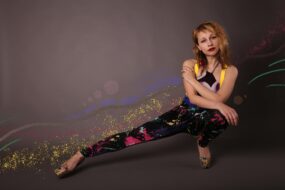
Fashion has always been a reflection of culture, status, and individuality. Throughout history, certain individuals have left an indelible mark on the world of fashion, influencing trends and shaping the way we dress today. From royal figures and Hollywood legends to modern-day influencers and designers, these fashion icons have set standards of style that continue to inspire. This article explores some of the most influential fashion icons through history and their lasting impact on the fashion industry.
1. The Early Fashion Pioneers
Marie Antoinette (1755–1793)
Marie Antoinette, the last queen of France before the French Revolution, was a true fashion icon of the 18th century. Known for her extravagant gowns, elaborate hairstyles, and lavish accessories, she set trends in the French court and beyond. Her fondness for pastel-colored silk dresses, floral motifs, and the famous “pouf” hairstyle became synonymous with aristocratic fashion. While her indulgent style was criticized for its excess, her influence on haute couture remains undeniable.
Beau Brummell (1778–1840)
Beau Brummell, often considered the father of modern men’s fashion, revolutionized menswear in the early 19th century. He introduced the concept of dandyism—sharp tailoring, well-fitted suits, and meticulous grooming. His preference for dark, understated colors and simple yet elegant designs contrasted with the overly ornate fashion of his time. His legacy lives on in contemporary menswear, particularly in the tailored suits worn by today’s gentlemen.
2. The Golden Age of Hollywood and Mid-Century Style
Audrey Hepburn (1929–1993)
Audrey Hepburn epitomized timeless elegance and minimalistic chic. Her collaboration with designer Hubert de Givenchy resulted in some of the most iconic fashion moments in history, including the little black dress in Breakfast at Tiffany’s. Hepburn’s style was defined by clean lines, cropped trousers, ballet flats, and simple yet sophisticated dresses. Her influence on modern fashion can be seen in the enduring popularity of classic silhouettes and effortless grace.
Marilyn Monroe (1926–1962)
Marilyn Monroe’s style was all about glamour, femininity, and confidence. She popularized figure-hugging dresses, high heels, and red lipstick, creating an image that exuded sex appeal and allure. The white halter dress from The Seven Year Itch remains one of the most recognizable outfits in fashion history. Monroe’s influence can still be seen in contemporary fashion, where body positivity and embracing one’s curves have become celebrated.
Coco Chanel (1883–1971)
Coco Chanel redefined women’s fashion by introducing a sense of comfort and practicality without compromising elegance. She pioneered the use of jersey fabric for women’s wear, introduced the Chanel suit, and made the little black dress a staple in every wardrobe. Chanel’s minimalist yet luxurious approach to fashion continues to shape modern-day trends, emphasizing sophistication and understated style.
3. The Revolutionary 1960s and 1970s
Twiggy (Lesley Lawson, born 1949)
As the face of the Swinging Sixties, Twiggy became the embodiment of mod fashion. With her boyish figure, pixie haircut, and dramatic eye makeup, she revolutionized beauty and style. Twiggy’s preference for mini skirts, shift dresses, and bold geometric prints mirrored the youthful, free-spirited energy of the decade. Her influence is still evident in today’s retro-inspired collections.
David Bowie (1947–2016)
David Bowie was a pioneer of androgynous fashion, using clothing as a form of self-expression. His alter egos, including Ziggy Stardust and the Thin White Duke, showcased flamboyant, futuristic, and avant-garde styles. Bowie’s fearless approach to fashion broke gender norms and encouraged individuality, influencing countless designers and artists.
4. The 1980s and 1990s: Bold Statements and Supermodels
Princess Diana (1961–1997)
Princess Diana was not just a royal figure but a global style icon. Her fashion evolution—from romantic, fairy-tale gowns to sleek, power-dressing ensembles—captivated the world. Diana’s off-duty looks, such as oversized blazers, mom jeans, and sweatshirts, foreshadowed today’s love for casual chic. Her ability to mix high fashion with everyday wear made her relatable and revolutionary in her approach to dressing.
Madonna (born 1958)
Madonna’s chameleon-like ability to reinvent herself through fashion has made her an enduring icon. From lace gloves and corsets in the Like a Virgin era to power suits and grunge-inspired looks in the 1990s, she has consistently pushed fashion boundaries. Madonna’s fearless attitude continues to inspire musicians and designers alike, proving that fashion is a tool for self-empowerment.
Naomi Campbell, Cindy Crawford, and the Supermodels of the 90s
The rise of the supermodel era in the 1990s brought names like Naomi Campbell, Cindy Crawford, Linda Evangelista, and Kate Moss to the forefront of fashion. Their dominance on the runway and in campaigns solidified the idea that models could be more than just mannequins—they became household names and influencers before social media even existed. Their effortless glamour and off-duty style continue to inspire contemporary fashion trends.
5. The 21st Century: Fashion in the Digital Age
Rihanna (born 1988)
Rihanna has redefined modern fashion with her fearless and unpredictable style choices. As a singer, actress, and businesswoman, she has launched successful ventures, including Fenty Beauty and Fenty fashion house under LVMH. Her ability to blend streetwear with high fashion has made her a favorite among designers and fans alike. Rihanna’s impact on inclusivity in fashion, particularly in terms of body positivity and diverse representation, is groundbreaking.
Harry Styles (born 1994)
Harry Styles has become a modern-day fashion icon through his embrace of gender-fluid fashion. Whether it’s rocking lace blouses, pearl necklaces, or Gucci suits, Styles challenges traditional menswear norms and promotes individuality. His androgynous approach has opened doors for greater acceptance of self-expression through clothing.
Zendaya (born 1996)
Zendaya has rapidly established herself as a fashion powerhouse. Working closely with stylist Law Roach, she consistently delivers show-stopping red carpet moments. Whether she’s paying homage to vintage icons or wearing futuristic designs, her ability to pull off diverse looks makes her one of the most exciting fashion influencers of today.
Conclusion: The Ever-Evolving Nature of Fashion Icons
Fashion is cyclical, and while trends may come and go, the impact of these fashion icons remains timeless. From the extravagance of Marie Antoinette to the modern elegance of Zendaya, each era has brought forth individuals who redefine style. Their influence extends beyond clothing; they inspire confidence, challenge norms, and shape cultural conversations around beauty and identity. As fashion continues to evolve, new icons will emerge, but the legacy of past and present style trailblazers will always serve as a source of inspiration for generations to come.























